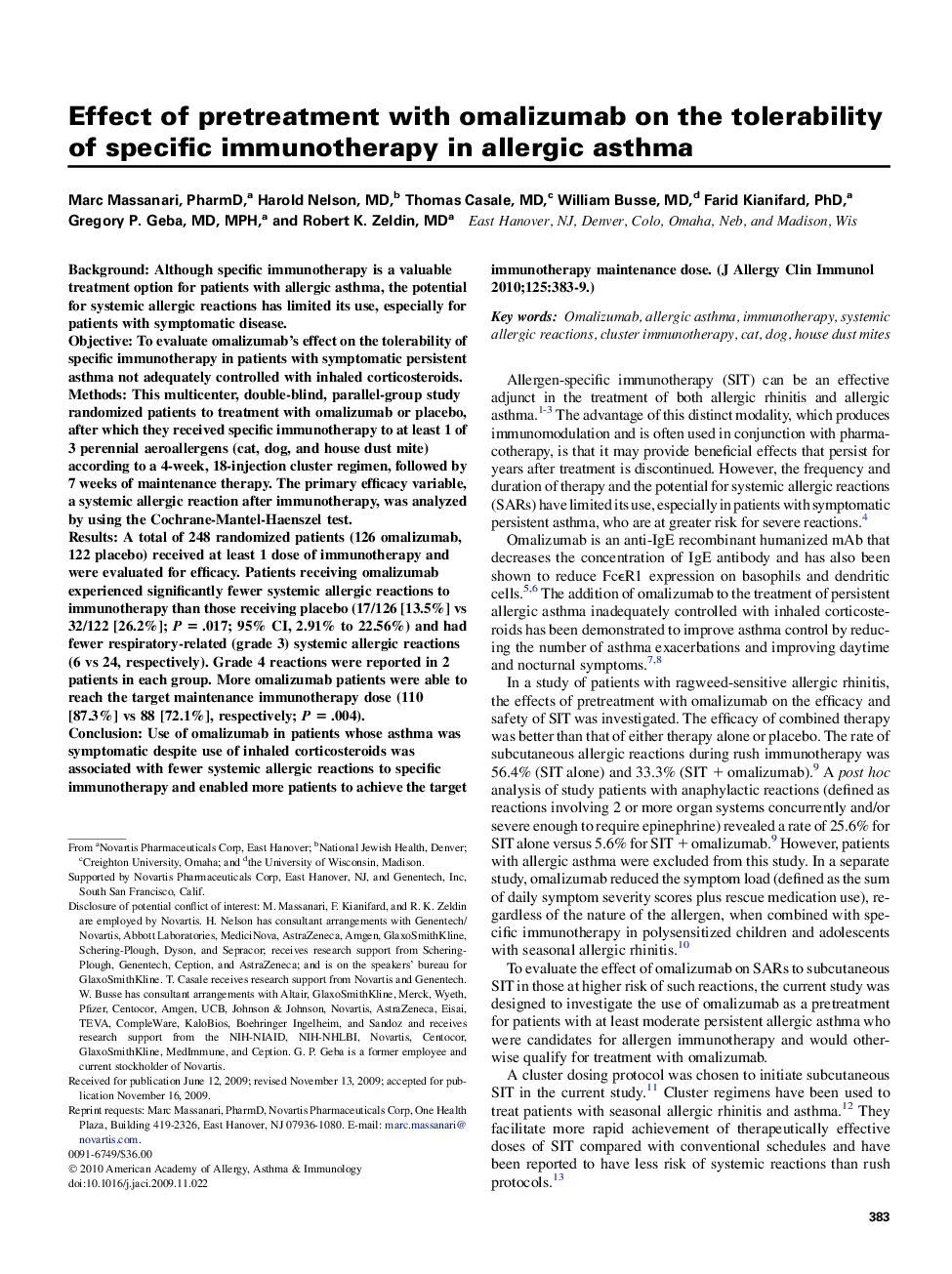| Article ID | Journal | Published Year | Pages | File Type |
|---|---|---|---|---|
| 3200076 | Journal of Allergy and Clinical Immunology | 2010 | 7 Pages |
BackgroundAlthough specific immunotherapy is a valuable treatment option for patients with allergic asthma, the potential for systemic allergic reactions has limited its use, especially for patients with symptomatic disease.ObjectiveTo evaluate omalizumab's effect on the tolerability of specific immunotherapy in patients with symptomatic persistent asthma not adequately controlled with inhaled corticosteroids.MethodsThis multicenter, double-blind, parallel-group study randomized patients to treatment with omalizumab or placebo, after which they received specific immunotherapy to at least 1 of 3 perennial aeroallergens (cat, dog, and house dust mite) according to a 4-week, 18-injection cluster regimen, followed by 7 weeks of maintenance therapy. The primary efficacy variable, a systemic allergic reaction after immunotherapy, was analyzed by using the Cochrane-Mantel-Haenszel test.ResultsA total of 248 randomized patients (126 omalizumab, 122 placebo) received at least 1 dose of immunotherapy and were evaluated for efficacy. Patients receiving omalizumab experienced significantly fewer systemic allergic reactions to immunotherapy than those receiving placebo (17/126 [13.5%] vs 32/122 [26.2%]; P = .017; 95% CI, 2.91% to 22.56%) and had fewer respiratory-related (grade 3) systemic allergic reactions (6 vs 24, respectively). Grade 4 reactions were reported in 2 patients in each group. More omalizumab patients were able to reach the target maintenance immunotherapy dose (110 [87.3%] vs 88 [72.1%], respectively; P = .004).ConclusionUse of omalizumab in patients whose asthma was symptomatic despite use of inhaled corticosteroids was associated with fewer systemic allergic reactions to specific immunotherapy and enabled more patients to achieve the target immunotherapy maintenance dose.
